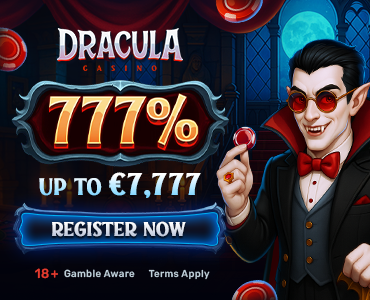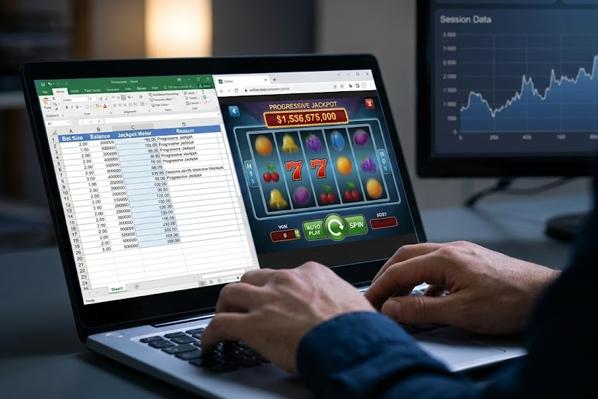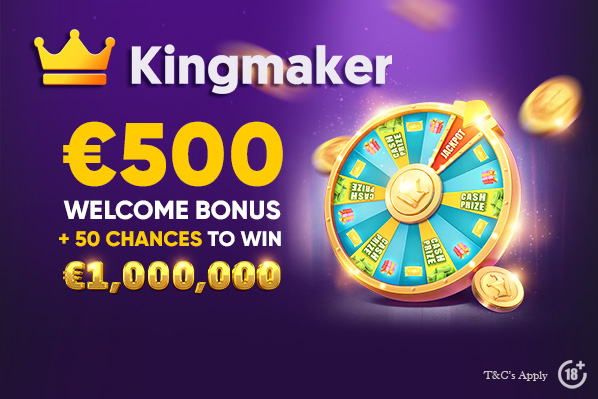News
For years, slot machines have dominated online casinos. Their mechanics are simple, the jackpots flashy, and the gameplay fast. But a new challenger has carved out serious territory in the casino world: live dealer game shows.
Powered by studios like Evolution and Pragmatic Play, games like Crazy Time, Monopoly Live, Funky Time, and Boom City have introduced a hybrid of RNG gambling, live entertainment, and interactive strategy. They’ve exploded in popularity across streaming platforms and mobile casino apps.
But are they actually better than slots when it comes to winning real, big money?
That depends on what you’re after: raw payout potential, entertainment value, or consistency.
Let’s break it down.
The Slot Machine Model: Massive Potential, Rarely Realized
Slots are built around volatility and math. A high-volatility slot like Dead or Alive 2 or Money Train 3 can theoretically pay out over 20,000x your bet. And progressives like Mega Moolah have created overnight millionaires off a single spin.
But these payouts are statistical anomalies. A typical slot session will be full of dry spells, cold streaks, and bonus rounds that amount to pocket change. You can sit through 300 spins without ever hitting a return over 10x. That’s the tradeoff: the ceiling is high, but the climb is steep and usually unrewarding.
Most slots don’t let you do much but spin and wait. There’s no timing, no momentum, no reading the game—it’s just pull, hope, repeat. And while some slots advertise 96%+ RTP (return to player), that number’s calculated over millions of spins. Your personal session? It might return 20%. Or nothing.
Live Game Shows: Controlled Chaos with Real-Time Payouts
Live game shows flip the model. These are streamed in real time from studios, often hosted by human presenters who spin wheels, open briefcases, or trigger bonus features on camera. They’re built more like TV game shows than traditional casino games.
At first glance, they might seem gimmicky. But look closer, and there’s real money to be made—especially in the bonus rounds.
Take Crazy Time, for example. You bet on segments of a wheel: 1, 2, 5, 10, or bonus games like Cash Hunt, Coin Flip, Pachinko, and the titular Crazy Time. Most spins are low-return, but occasionally a bonus game lands with a multiplier. That’s when people hit 100x, 500x, even 1000x wins.
It’s not just luck—it’s timing. Players watch game trends, track bonus frequency, and change bets based on the wheel’s history. Is that just pattern recognition bias? Maybe. But it creates the feeling of strategy, which is more than slots offer.
The Payout Comparison: Raw Numbers vs. Real Chances
On paper, slot machines have a higher win potential. The biggest slot wins ever recorded dwarf anything hit on Monopoly Live. But if you’re looking for frequent wins or medium-sized cashouts, game shows often deliver better.
A 200x win on Pachinko with a $5 bet? That’s $1,000. And it happens more often than you’d expect.
Meanwhile, to win the same from a slot, you’d usually need to hit a bonus round and hope it performs—two layers of luck instead of one. Even then, many slots cap out at 100x to 200x wins unless you’re playing ultra-high variance titles.
Where slots rely on volume—hundreds of spins to “get lucky”—game shows reward session timing. You can walk in, bet $10 on Coin Flip or Cash Hunt, and walk out with a serious payout in under five minutes.
Entertainment Value (and Bankroll Preservation)
Let’s not ignore the player experience.
Slots are solitary. You spin, you lose, you maybe win, you spin again. Some players love the zoning-out aspect. Others burn out after 15 minutes.
Live game shows are social. You’ve got a live host reacting in real time, a running chat box full of other players, music, lights, actual pacing. Even when you lose, you don’t feel as bored. That matters.
And from a bankroll perspective, game shows tend to play slower. You’re not hammering 10 spins per minute. There’s a rhythm to the games, which helps prevent blowing through your budget in record time.
For newer players, that can be the difference between lasting an hour or going broke in ten minutes.
Tracking Wins and Improving Odds
Here’s where game shows offer a subtle edge—data.
Unlike slots, which operate behind closed doors with no meaningful feedback loop, game shows are public and persistent. You can track previous spins, bonus hit rates, and even win distribution.
Smart players use that to their advantage. If Crazy Time hasn’t hit a bonus in 40 spins, some jump in expecting a cycle shift. Others use tools to monitor trends across multiple sessions.
That’s where casino apps become incredibly useful. You should always use casino apps to track which games pay out the best—like our Crazy Time tracker, which shows real-time bonus frequencies, top payouts, and segment performance. If you’re going to play a game that involves timing, you may as well have the data to back your bets.
Verdict: Which One Wins?
If your dream is to spin $0.25 into $100,000, stick with slots. Just know the odds are microscopic.
But if you’re after a mix of entertainment, a fair shot at 100x+ returns, and games that don’t feel like spreadsheets disguised as cartoons, live game shows are the better bet.
They won’t make you rich. Neither will slots. But they might make the ride feel like something worth being a part of—and they’ll do it without chewing up your time, attention span, and bankroll quite as fast. So no, game shows aren’t “better” in the traditional casino math sense. But they’re better for players who actually want to enjoy gambling—and still have a shot at walking away with more than they started with.
Feb 24 - 4 min read
Does Tracking Jackpots Actually Make Sense? Here is what the Data Says
Many members from our community have been asking us if it’s worth tracking jackpots, so we put it to an ultimate test.
Feb 10 - 2 min read
Kingmaker Casino – A Royal Experience for Every Player
Launched in January 2024, Kingmaker has quickly established itself as a premier destination for online casino and sports betting enthusiasts.
Feb 5 - 2 min read
1xCasino - A Next-Generation Mobile Casino with Bonuses that deliver
If you're looking for an online casino that combines smart technology, convenience, generous bonuses, and a huge variety of games, 1xCasino is absolutely worth your attention. This mobile-first platform is optimized for Android - all games are accessible via the official APK app



